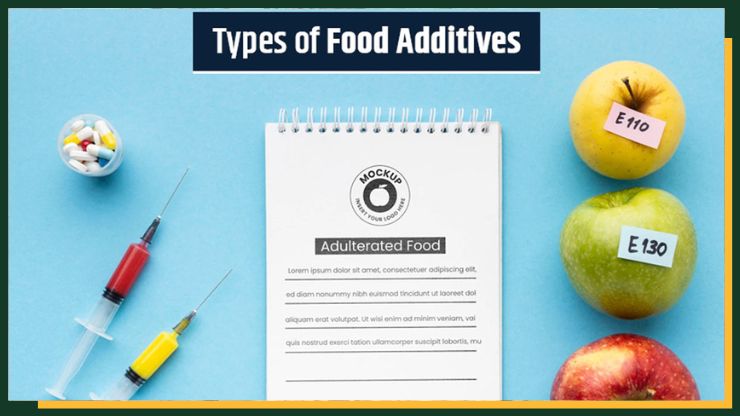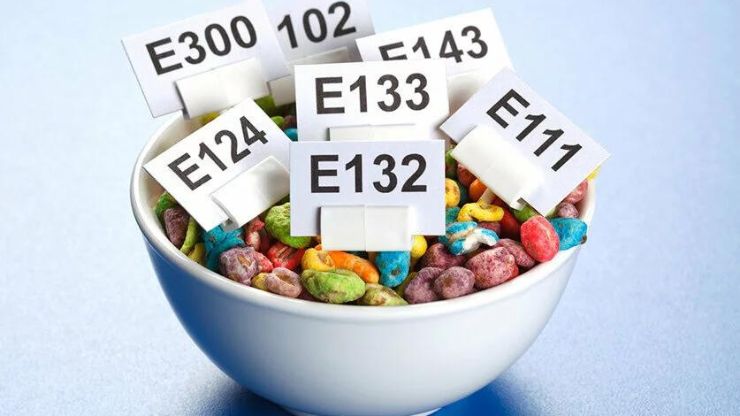Should We Worry About Food Additives – The use of food additives in our daily diet has become ubiquitous, transforming the way we consume and interact with food. These substances, which include preservatives, colorants, sweeteners, and more, serve various purposes, such as extending shelf life, enhancing flavor, and improving food safety. While food additives are rigorously regulated by agencies like the FDA, concerns about their safety persist among consumers and health experts.
This essay will explore the multifaceted issue of food additives, delving into their types, regulatory oversight, common concerns, benefits, and potential solutions. We will examine the controversy surrounding certain additives and their effects on public health.
Ultimately, this analysis aims to provide a balanced perspective on the topic, helping individuals make informed choices about the food they consume while considering the role of food additives in our modern food industry.
Table of Contents
ToggleDefinition of Food Additives
Food additives are substances intentionally added to food during its production or processing to perform specific functions. These functions can include enhancing the taste, texture, appearance, and shelf life of the food product, as well as improving its safety and nutritional value.
Food additives can be natural or synthetic and serve a wide range of purposes, such as preserving freshness, preventing spoilage, enhancing color, providing sweetening or flavoring, and acting as stabilizers or emulsifiers in various food products.
Regulatory authorities, like the Food and Drug Administration (FDA) in the United States, oversee and approve the use of food additives to ensure they are safe for consumption within established guidelines.
Also, Read – Delicious Seafood Dishes
Don't just scroll, subscribe!
BuzzTrail's unique web-stories are the cure for boredom you've been waiting for.
Types of Food Additives

Food additives come in various types, each serving a specific purpose in food production and processing. Some common types of food additives include:
- Preservatives: These additives help extend the shelf life of food products by inhibiting the growth of microorganisms, such as bacteria, yeasts, and molds. Examples include sodium benzoate, sorbic acid, and nitrites.
- Flavor Enhancers: Flavor enhancers are used to improve or intensify the taste and aroma of food. Monosodium glutamate (MSG) is a well-known example.
- Colorants: These additives are used to enhance or modify the color of food products, making them more visually appealing. Examples include artificial food dyes like Red #40 and natural colorants like beet juice or turmeric.
- Sweeteners: Sweeteners add sweetness to foods and beverages without the calories of sugar. They can be natural (e.g., honey, maple syrup) or artificial (e.g., aspartame, saccharin).
- Emulsifiers: Emulsifying agents help blend ingredients that do not naturally mix, such as oil and water. Common emulsifiers include lecithin and mono- and diglycerides.
- Stabilizers: Stabilizers are used to maintain the texture, consistency, and quality of food products. They prevent ingredients from separating or settling. Examples include agar-agar and carrageenan.
- Antioxidants: Antioxidants are added to food to prevent the oxidation of fats and oils, which can lead to rancidity and off-flavors. Common antioxidants include vitamin E (tocopherol) and BHA (butylated hydroxyanisole).
- Thickeners and Gelling Agents: Thickeners and gelling agents are used to modify the texture of food, giving it a desired thickness or gel-like consistency. Examples include pectin and agar.
- Acidity Regulators: These additives help control and adjust the acidity or pH of a food product. Citric acid and sodium citrate are commonly used acidity regulators.
- Anticaking Agents: Anticaking agents are added to powdered or granulated foods to prevent clumping and improve flowability. Examples include silicon dioxide and calcium silicate.
- Bulking Agents: Bulking agents are used to increase the volume and texture of certain foods without significantly affecting their caloric content. Inulin and cellulose are examples.
These are just a few examples of the various types of food additives used in the food industry. Food manufacturers use these additives to achieve specific characteristics, improve food safety, and enhance the overall quality of products. Regulatory agencies closely monitor their use to ensure they are safe for consumption.
Also, Read – Power of the Banana Peel
Should We Worry About Food Additives?
Whether we should worry about food additives is a complex and nuanced question. The concern about food additives primarily revolves around their potential impact on human health. Here are some key points to consider when addressing this issue:
- Safety Regulations: Food additives are subject to rigorous safety assessments by regulatory bodies such as the U.S. Food and Drug Administration (FDA) and the European Food Safety Authority (EFSA). They establish acceptable daily intake (ADI) levels and assess the potential risks of additives.
- Generally Recognized as Safe (GRAS): Many food additives are designated as “Generally Recognized as Safe” (GRAS), indicating that they have a long history of safe use. However, concerns have been raised about the transparency and independence of GRAS determinations.
- Allergic Reactions: Some individuals may be sensitive or allergic to certain food additives. This can lead to adverse reactions, emphasizing the importance of labeling and awareness.
- Controversial Additives: Certain additives, such as artificial sweeteners (e.g., aspartame), food dyes (e.g., Red #40), and MSG (monosodium glutamate), have faced ongoing controversy and raised concerns about their safety and potential health effects.
- Long-Term Health Effects: While many food additives are considered safe in the short term, there are ongoing debates about their potential long-term health impacts, especially when consumed regularly over an extended period.
- Effects on Vulnerable Populations: Certain groups, such as children and individuals with specific health conditions, may be more susceptible to the potential effects of food additives. This raises concerns about their consumption in these populations.
- Benefits of Food Additives: Food additives play a crucial role in preserving freshness, enhancing flavor, and ensuring food safety. They contribute to the convenience and cost-effectiveness of modern food production.
- Informed Consumer Choices: Consumers can mitigate concerns by reading food labels, opting for natural and organic products, and staying informed about the additives used in their food.
Conclusion
In conclusion, the question of whether we should worry about food additives is a matter of informed choice. While legitimate concerns exist, regulatory agencies work to ensure their safety. Consumers can mitigate worries through education, label reading, and selecting natural alternatives.
Food additives play a crucial role in modern food production, enhancing convenience and safety. Striking a balance between enjoying these benefits and addressing potential risks is key to making mindful dietary decisions.
FAQs
What are food additives, and why are they used in food?
What are food additives, and why are they used in food?
Food additives are substances added to food during production to serve specific purposes, such as enhancing taste, extending shelf life, and improving safety and appearance.
Are food additives safe for consumption?
Are food additives safe for consumption?
Regulatory agencies like the FDA oversee food additives and establish safety guidelines. Most additives are considered safe when consumed within established limits.
What are some common concerns about food additives?
What are some common concerns about food additives?
Concerns include potential allergic reactions, long-term health effects, and controversies surrounding certain additives like artificial sweeteners and food dyes.

